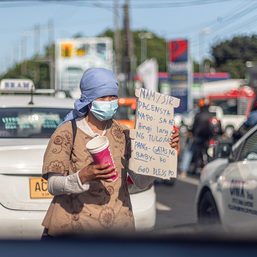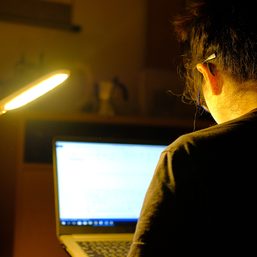SUMMARY
This is AI generated summarization, which may have errors. For context, always refer to the full article.

MANILA, Philippines – President Ferdinand Marcos Jr. has signed a law aiming to uphold the rights and welfare of domestic caregivers.
Marcos signed Republic Act No. 11965, “An Act Institutionalizing Policies for the Protection and Welfare of Caregivers in the Practice of their Occupation,” on November 23, Malacañang announced on Friday, December 1.
The Caregivers’ Welfare Act covers caregivers working in private homes, nursing or care facilities, and other residential settings in the country. Caregivers hired either by a direct employer, or placed through a Public Employment Services Office (PESO) or Private Employment Agency (PEA) are also covered by the law.
The law details that employment contracts must cover a domestic caregiver’s working hours, compensation, authorized deductions, rest days, and benefits, among other facets of employment.
Under the law, employers are required to pay their caregivers every two weeks or twice a month, at intervals not exceeding 16 days.
They must also provide their caregivers basic necessities, such as, for live-in arrangements, three adequate meals a day that take into consideration a caregiver’s religious beliefs and cultural practices, and humane sleeping conditions that respect the caregiver’s privacy.
All caregivers are entitled to overtime pay should they exceed work beyond eight hours a day. They are also entitled to night shift differential, as well as 13th month pay if they have rendered at least one month of service.
Caregivers employed for at least a year are entitled to an annual service incentive leave of at least five days with pay. They are also entitled to other leave benefits provided by existing laws.
The law also requires caregivers to be covered by the Social Security System, the Philippine Health Insurance Corporation, and the Home Development Mutual Fund.
A caregiver has the right to terminate his or her contract at any time before its expiration if they experience physical, verbal, or emotional abuse.
The Department of Migrant Workers (DMW), in coordination with the labor department and the Technical Education and Skills Development Authority, is tasked to issue rules and regulations for the recruitment and deployment of Filipino caregivers for overseas employment to ensure their protection – from going abroad to their reintegration back into the country.
In signing the law, Malacañang said, the President recognized the need to “protect the rights of the caregivers towards a decent employment and income, and adhere to a policy of protecting them against abuse, harassment, violence and economic exploitation.”
In a statement on Friday, Senate Majority Leader Joel Villanueva hailed the law’s enactment, highlighting the “important role of caregivers in our national development.”
Villanueva, who was the principal author of the law creating the DMW, noted how the law also championed OFW caregivers.
“This recognizes the vulnerability of OFWs, particularly caregivers. Thus, a nuanced approach is needed to ensure the safety and protection of Filipino caregivers in all stages of overseas employment, as well as their reintegration once they return home,” Villanueva said.
Prior to the law’s enactment, the Commission on Human Rights (CHR) also expressed support for the measure.
“A competitive compensation package and benefits as well as good working conditions must be guaranteed to them so they will choose to serve here in our country and not just gain experience here as a stepping stone to a more lucrative offer abroad,” the CHR said on September 19. – Rappler.com
Add a comment
How does this make you feel?










![[OPINION] Unpaid care work by women is a public concern](https://www.rappler.com/tachyon/2024/07/20240725-unpaid-care-work-public-concern.jpg?resize=257%2C257&crop_strategy=attention)




There are no comments yet. Add your comment to start the conversation.